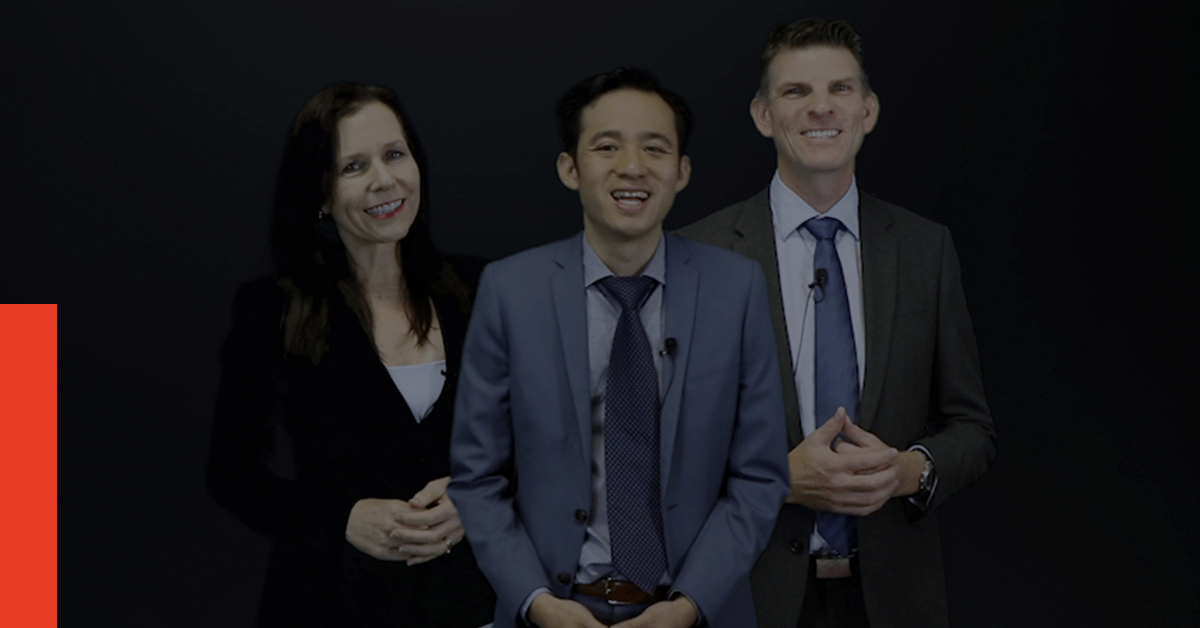March 2024 Round Up - ATO wielding Part IVA against professional practices
The ATO wields Part IVA against professional practices in two new distribution of profits cases before the AAT.
Change is a constant for the profession. The Knowledge Shop membership can help you and your team keep ahead of change with an advisers' help desk, workpaper knowledge base, quarterly PD, and more - wherever you are and however you are working. Book in a time for a tour or call the Knowledge Shop team on 1300 378 950.
Professional practices have been in the ATO spotlight for many years now for the way they distribute profits. However, with two new cases before the AAT, the ATO is gaining momentum. We look at the uptick in activity in this area.
Plus, a Full Federal Court decision this month revisits some of the key principles on travel deductions.
Inside this month Michael Carruthers (Tax Director), Matthew Tse (Tax Adviser) and Lisa Armstrong (MD) bring you:
--
ATO wields Part IVA in professional practice case
The AAT has released decisions on two cases dealing with similar arrangements. The cases broadly involve a solicitor who controlled a number of practice trusts that derived profits through marketing and facilitating tax planning arrangements.
While the arrangement in each case was complex and involved a large number of steps, the practice trusts ensured their business profits weren’t subject to tax by essentially making trust distributions on paper through a series of trusts and ultimately to either a company that had existing tax losses or a tax-exempt entity. However, the real funds relating to the trust distribution (less a commission paid for the use of these entities) were ultimately received by the solicitor or their associated entities in the form of a loan.
The ATO argued that the general anti-avoidance provisions in Part IVA applied to the arrangements such that the solicitor in each case should be personally assessed on these amounts. In very broad terms, the anti-avoidance provisions in Part IVA apply to schemes undertaken with the sole or dominant purpose of obtaining a tax benefit.
The key argument of the taxpayer was that they did not derive a tax benefit from the scheme. The solicitors argued that they were personally exposed to a high degree of risk and for asset protection reasons they would have ensured that they would not receive trust distributions personally had the scheme had not been entered into.
The AAT disagreed with the taxpayer’s argument having regard to following:
- It was not sufficient to show that the taxpayer would not have derived the trust distribution had the scheme not been entered into, they were also required to positively show who the trust distributions would have been made to; and
- In any case, it was not unreasonable to expect some or all of that profit to be assessed to the taxpayer where the profits of a business rely on the taxpayer’s own efforts.
Considering the artificial and contrived manner of making trust distributions on paper through a series of trusts ultimately to tax-exempt and loss companies, the AAT also concluded that obtaining a tax benefit was the dominant purpose of the scheme.
Practitioners should approach situations like this carefully. It is important to be aware that there are a number of ways in which the ATO can potentially challenge arrangements involving the distribution of profits from a professional practice. For example:
- If a trading entity derives personal services income that mainly relates to the skills and efforts of a particular individual, the ATO has certain expectations around ensuring the profits are assessed to the individual performing the work. This is regardless of whether the personal services income tests are passed or not.
- If a trading entity doesn’t derive personal services income but income from a business structure involving a professional practice, the ATO has released PCG 2021/4 which sets out its compliance approach to targeting arrangements that don’t result in a reasonable level of profit being taxed in the hands of the individual practitioners.
If a trust makes paper distributions to loss entities to soak up deductions or losses, the integrity rules in section 100A also need to be considered. The ATO has recently issued TR 2022/4 and PCG 2022/2 which deal with this area.
Travel deductions and when employees are travelling for work
Reference: Bechtel Australia Pty Ltd v Commissioner of Taxation [2024] FCAFC 33
The Full Federal Court in Bechtel Australia Pty Ltd v Commissioner of Taxation [2024] FCAFC 33 looked at the FBT treatment of travel that was provided to the taxpayer’s fly-in-fly-out employees and whether the otherwise deductible rule could apply to reduce the taxable value of the benefit.
In summary, the employer both organised and paid for an employee’s travel between their home airport and the project site where they commenced their roster and shift.
The taxpayer argued that FBT did not apply due to the otherwise deductible rule, based on principles established in the Full Federal Court decision in John Holland Group Pty Ltd v Commissioner of Taxation [2015] FCAFC 82. The John Holland case dealt with similar circumstances where certain fly-in-fly out workers were responsible for making their own way to an agreed departure point (e.g., Perth airport) from which the employer transported them to their place of work.
The Full Federal Court in John Holland concluded that the otherwise deductible rule applied to the relevant travel undertaken by the employees, because they were travelling in the course of their employment. Importantly, this decision was reached having regard to the fact that from the agreed departure point (e.g., Perth airport) the employees had already reported for duty and were rostered on, were paid for the time they were travelling and were also subject to the employer’s direction and control.
The main issue in the Bechtel case was that the employees did not commence their roster and shift until they arrived at the project site. This was critical to the Full Federal Court’s conclusion that the employee’s travel was undertaken before the employee commenced their employment duties. This was despite:
- The employer having policies that governed employee conduct when away from the project location (e.g., including while travelling);
- The employees receiving a project allowance due to the remoteness of the project location; and
- The employer facilitating and arranging for the travel.
As a result, the travel expenses would not have been deductible to the employee personally and were therefore not ‘otherwise deductible’ for FBT purposes.
For practitioners with clients that arrange travel for fly-in-fly-out workers to ‘remote’ locations, it’s important to remember that there is a specific FBT exemption that can sometimes apply. If this exemption isn’t available (e.g., the location is not in certain ‘remote’ areas) and clients are seeking to rely on the otherwise deductible rule instead, this case demonstrates a need to review the arrangement and employment policies in detail.
important: This information is general information only and not intended to be financial product advice, investment advice, tax advice or legal advice and should not be relied upon as such. As this information is general in nature it may omit detail that could be significant to your particular circumstances. Scenarios, examples, and comparisons are shown for illustrative purposes only. Certain industry data used may have been obtained from research, surveys or studies conducted by third parties, including industry or general publications. Knowledge Shop has not independently verified any such data provided by third parties or industry or general publications. No representation or warranty, express or implied, is made as to its fairness, accuracy, correctness, completeness or adequacy. We recommend that individuals seek professional advice before making any financial decisions. This information is intended to assist you as part of your own advice to your client. Use of this information is your responsibility. To the maximum extent permitted by law, Knowledge Shop expressly disclaims all liabilities and responsibility in respect of any expenses, losses, damages or costs incurred by any recipient as a result of the use or reliance on the information including, without limitation, any liability arising from fault or negligence or otherwise. While all care has been taken to ensure the information is correct at the time of publishing, superannuation and tax legislation can change from time to time and Knowledge Shop Pty Ltd is not liable for any loss arising from reliance on this information, including reliance on information that is no longer current. Tax is only one consideration when making a financial decision.
Share this
You May Also Like
These Related Stories

Feb 2024 Round Up - what's up with ATO debt recovery?

Jan 2025 Round Up | The looming Div 7A problem areas


No Comments Yet
Let us know what you think